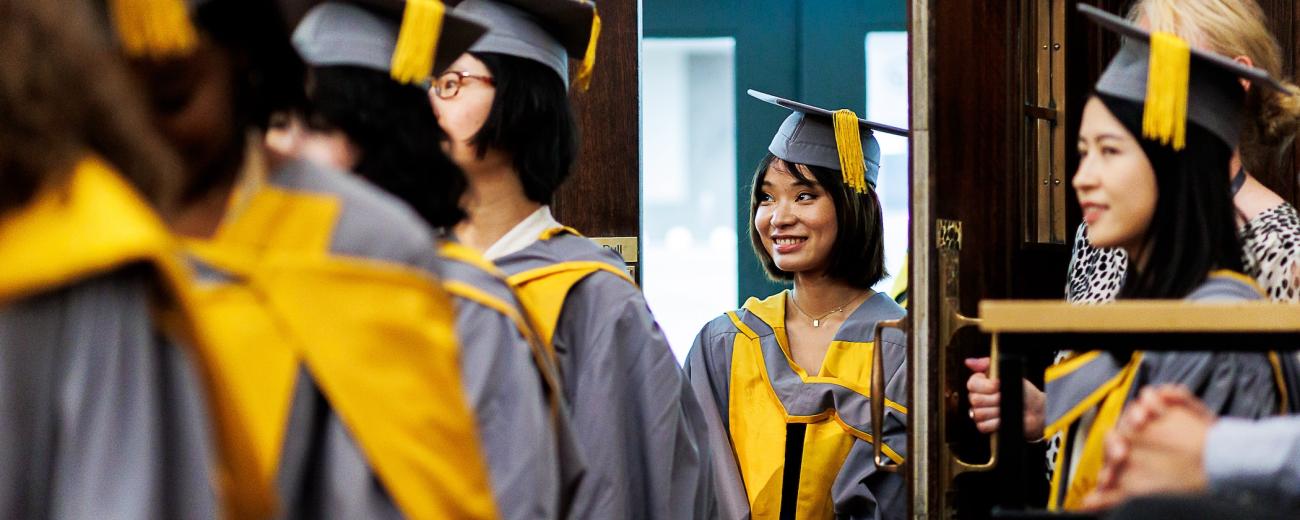Career advice for graduating students: Follow what interests you


As we near the end of the academic year with final-year students considering what to do next, Anna offers some advice on how to navigate this exciting new stage.
Whether you're completing your undergraduate or postgraduate studies, transitioning from university to the professional world is a transformative journey. By following your interests and passions, making the most of the SOAS network, cultivating intercultural competence, embracing lifelong learning, and navigating uncertainty with resilience, you'll be well-equipped to thrive in today's global landscape.
Follow what interests you
Take the time to explore your passions. Engage in internships, research projects, or extracurricular activities aligned with your interests. At SOAS, the diverse range of programmes and interdisciplinary approach provide ample opportunities to delve deep into subjects that captivate you.
Embrace the freedom to pursue your passions and carve out a meaningful career path.
The careers team at SOAS is great for looking at CVs and cover letters, discussing career paths, and answering any of your post-graduation questions. Whether it's studying languages, delving into international relations, or analysing cultural phenomena, embrace the freedom to pursue your passions and carve out a meaningful career path.
Use the alumni network
Networking is crucial for unlocking career opportunities, and SOAS offers a vibrant ecosystem for building valuable connections. Attend career fairs, alumni events, and networking sessions to connect with professionals in your field.
The SOAS alumni network spans the globe, offering a wealth of insights and mentorship opportunities. Additionally, professors and peers at SOAS can serve as invaluable resources as you navigate your career journey. You also have access to SOAS Connect, our mentoring platform designed to help connect alumni and students around the world for peer-to-peer career advice and guidance. Don't underestimate the power of networking - it can open doors to unexpected opportunities and mentorship.
Embrace the interdisciplinary approach of SOAS
SOAS's interdisciplinary approach goes beyond traditional boundaries, encouraging students to explore connections between various fields of study. This approach recognises that many real-world issues are complex and multifaceted, requiring insights from multiple disciplines to address effectively.
This interdisciplinary approach recognises that many real-world issues are complex and multifaceted, requiring insights from multiple disciplines to address effectively.
Graduating from SOAS with an interdisciplinary background equips you with adaptability—the ability to thrive in diverse environments and pivot when faced with new challenges. Whether pursuing further studies, entering the workforce, or embarking on a different path, interdisciplinary skills provide a solid foundation for success.
Remember that each challenge is an opportunity for growth
As your time at SOAS comes to an end, lean on your peers, mentors, and support networks. Remember that setbacks are temporary, and resilience is the key to overcoming obstacles and achieving your goals. Approach your career journey with perseverance and determination, knowing that each challenge is an opportunity for growth.
The interdisciplinary learning you've had at SOAS has empowered you to approach complex issues with a diverse skill set, a holistic understanding, critical thinking abilities, adaptability, and a spirit of innovation. Be confident that these skills are invaluable assets as you graduate and embark on your professional journey, enabling you to make meaningful contributions to your field and society at large.
As a fellow student at SOAS, I wish you the best of luck on your journey.
About the author
Anna Sandt is pursuing an MA in Human Rights Law. Originally from Boston, U.S.A., Anna’s favourite hobbies include hiking, swimming, and discovering new study locations. Her academic areas of interest are immigration law and women’s human rights.




